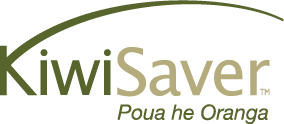 Ngā takoha kaitukumahi ki ngā kaupapa KiwiSaver me ngā tahua tautuku
Employer contributions to KiwiSaver schemes and complying funds
Ngā takoha kaitukumahi ki ngā kaupapa KiwiSaver me ngā tahua tautuku
Employer contributions to KiwiSaver schemes and complying funds
You must make a compulsory employer contribution to your employee in a KiwiSaver scheme or complying fund. You do this each time you pay them salary or wages.
Compulsory employer contributions
You must make contributions to your employee’s KiwiSaver scheme or complying fund. They’re called ‘compulsory employer contributions (CEC)’.
The lowest rate for your contribution is 3% of your employee’s gross salary or wages.
You make a contribution to your KiwiSaver employees:
- aged 18 and over
- aged under 65 or those that have not been a KiwiSaver or complying fund member for five years (whichever date is later)
- in KiwiSaver or a complying fund and you deduct KiwiSaver contributions from their salary or wages
- not a member of a defined benefit scheme.
Tax you pay on your employer contribution
You'll need to pay tax on all your employer contributions to KiwiSaver schemes and complying funds. It's called the employer superannuation contribution tax (ESCT).
You do not pay this if you and your employee have agreed to treat some, or all, of your contribution as salary or wages under the PAYE rules.
Starting compulsory employer contributions
Start paying compulsory employer contributions (CECs) for your:
- new employees enrolled into KiwiSaver by you from their first pay
- employees who opted into KiwSaver or a complying fund from their first pay after you’re notified (by us or your employee).
Starting employees in KiwiSaver
Stopping compulsory employer contributions
You can stop making compulsory employer contributions if either:
- we, or your employee, give you an approved savings suspension notice
- your employee gives you a Non-deduction notice – KS51 (because they’re eligible to withdraw their savings)
- we ask you to stop.
Employees who become eligible for NZ Super
You stop compulsory employer contributions (CEC) for employees eligible for New Zealand Super.
You keep paying employer contributions for employees:
- you have an agreement with to keep paying
- aged 60 or over who joined KiwiSaver before 1 July 2019. Go to the employees with special circumstances for more information.
- you have volunteered to carry on paying.
You’ll need to pay the employer superannuation contribution tax (ESCT) on these employer contributions.
Employees with special circumstances
Contributions to both KiwiSaver schemes and complying funds
Your employee can be in a KiwiSaver scheme and a complying fund. Your compulsory employer contribution can go to one or be shared between them. For example, 2% to KiwiSaver and 1% to the complying fund.
Your compulsory employer contribution must still be at least 3%. If you give less than 3% to a complying fund you must pay the difference to your employee’s KiwiSaver scheme.
If your employee is a member of a KiwiSaver scheme and a complying fund, you are required to deduct contributions from their pay at the rate they advise. This deduction is your employee's contribution to their KiwiSaver scheme.
The rate you deduct employee contributions can be either 3%, 4%, 6%, 8% or 10% of their gross pay. Your employee tells you which rate to use on their KiwiSaver deduction form – KS2.
Voluntary employer contributions to employees
It's up to you if you want to make voluntary employer contributions to employees:
- above the 3% minimum compulsory employer contribution rate
- under 18 years old
- who are eligible for NZ Super.
You’ll still need to pay employer superannuation contribution tax (ESCT) on all your voluntary contributions.
Contributions for employees with special circumstances
There are some employees whose circumstances affect your employer contributions (and their deductions). Those employees are either:
- employees aged 60 who joined KiwiSaver before 1 July 2019
- on accident compensation
- on paid parental leave.
Employees with special circumstances
Agreed employment packages
Sometimes you and your employee may agree a total remuneration package. However, you must pay employer contributions on top of the package if it's not already included.
Your employee’s take-home pay should not be less because of the compulsory employer contributions (CEC).
You can also negotiate a salary package which includes a CEC component. However, employees must be paid at least the minimum wage excluding any CEC component.
Compulsory employer contributions on back pay
Backdated payments of salary or wages may mean paying compulsory employer contributions. This is only if you take KiwiSaver deductions from them.
Payment of employer contributions
You included in your return the:
- employer contributions
- employer superannuation contribution tax (ESCT).
Payment of contributions is different for KiwiSaver schemes and a complying fund. If you’re paying contributions for:
- KiwiSaver schemes, pay them with your total employer deductions payment for that period
- complying funds, send the payment to the employee’s complying fund.

